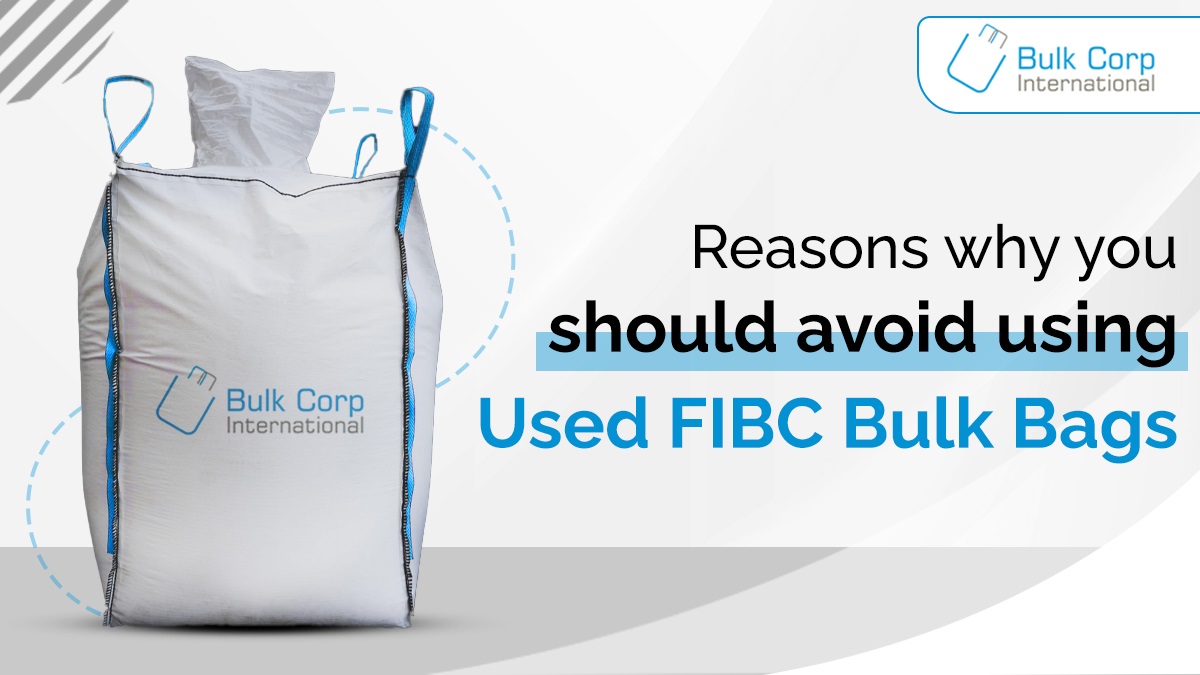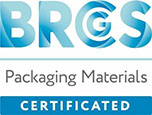Reasons why you should avoid using Used FIBC Bulk Bags

FIBC Bulk Bags are one of the most used bags for storing & transporting countless products & materials for numerous industries worldwide. FIBC Bulk Bags offer single-trip (5:1) and multi-trip (6:1 & 8:1) options.
Although FIBC Bulk Bags are affordable & cost-effective, there is a separate market across the globe for used bulk bags, where users buy “Used FIBC Bulk Bags” thinking it is recycled and refurbished. Not all FIBC Bulk Bags are manufactured for multiple reuses. In this blog, we will explain why you should avoid using “used FIBC Bulk Bags.”
4 Reasons why you should avoid using “Used FIBC Bulk Bags”
Risk of Contamination
FIBC Bulk Bags are used for storing & transporting a wide range of materials that include dry & wet products of chemicals, minerals, pharmaceuticals, and the food industry. When you are using used FIBC Bulk Bags, there are higher chances of contamination. If the bags are not properly cleaned & sanitized after use, they will contain contaminants that will affect the safety & quality of the bag’s content.E.g., if an FIBC Bulk Bag is used for transporting chemicals and is not adequately cleaned before using it for transporting food products, the chemicals on the bag’s fabric can contaminate the food products, making them unsafe for consumption. Hence, it is recommended to use a new FIBC Bulk Bag for every shipment to mitigate contamination risk.
Quality Issues
Used FIBC Bulk Bags have higher chances of quality degradation, such as holes, torn fabric, weakened seams, and more, which can result in spoilage, leakage, & spillage of products & materials, resulting in inventory loss during storage & transportation. Hence, it is recommended to use a new FIBC Bulk Bag designed to withstand the weight & pressure of the bag’s content without compromising its structural integrity. And without the risk of the bag getting torn or damaged.
Regulatory Compliance
Used FIBC Bulk Bags have significant concerns about regulatory compliance. There are specific regulations & requirements, depending on the type of materials being transported, that must be met to ensure the safety of the workers & environmental surroundings.E.g., if FIBC Bulk bags are used for transporting hazardous materials & fine powdery substances, they must comply with the safety regulations & compliance laid off for it. United Nations Symbol Bags are recommended for the transportation of hazardous goods. When you use used FIBC Bulk Bags, there are higher chances that they will not meet regulatory compliance and can result in fines, legal actions, and reputational damage. Hence, it is recommended to use new FIBC Bulk Bags that are designed & tested to meet the necessary safety standards and manufactured in accordance with regulatory compliance.
Environmental Concerns
Using used FIBC Bulk Bags has adverse effects on the environment. Though specific types of FIBC Bulk Bags are reusable, they eventually reach the end of their life cycle and must be disposed of. If the used FIBC Bulk Bags are not properly disposed of, they can end up in landfills, where it will take countless years for them to decompose & affect the environment, as they might be contaminated with hazardous materials, posing a risk (threat) to the environment & human health. Hence, it is recommended to properly wash & sanitize the FIBC Bulk Bag to wash out all contaminants before disposing of it, or else it can contaminate soil & groundwater.
Conclusion
After reading the blog, you would have firm clarity on why you shouldn’t use Used FIBC Bulk Bags and their impact on the environment & human health. For more tips, feel free to contact us. At Bulkcorp International, we manufacture FIBC Bulk Bags that are made from 100% virgin polypropylene (PP) and don’t have any adverse effect on the environment & workers handling them. For a quotation regarding our FIBC Bulk Bags, contact us at +91-79-3533 6805 or +91-79-3533 6804 or email enquiry@bulkcorp-int.com.
You may also like to read :
A Quick Guide to Jumbo Bags Types and their Uses





